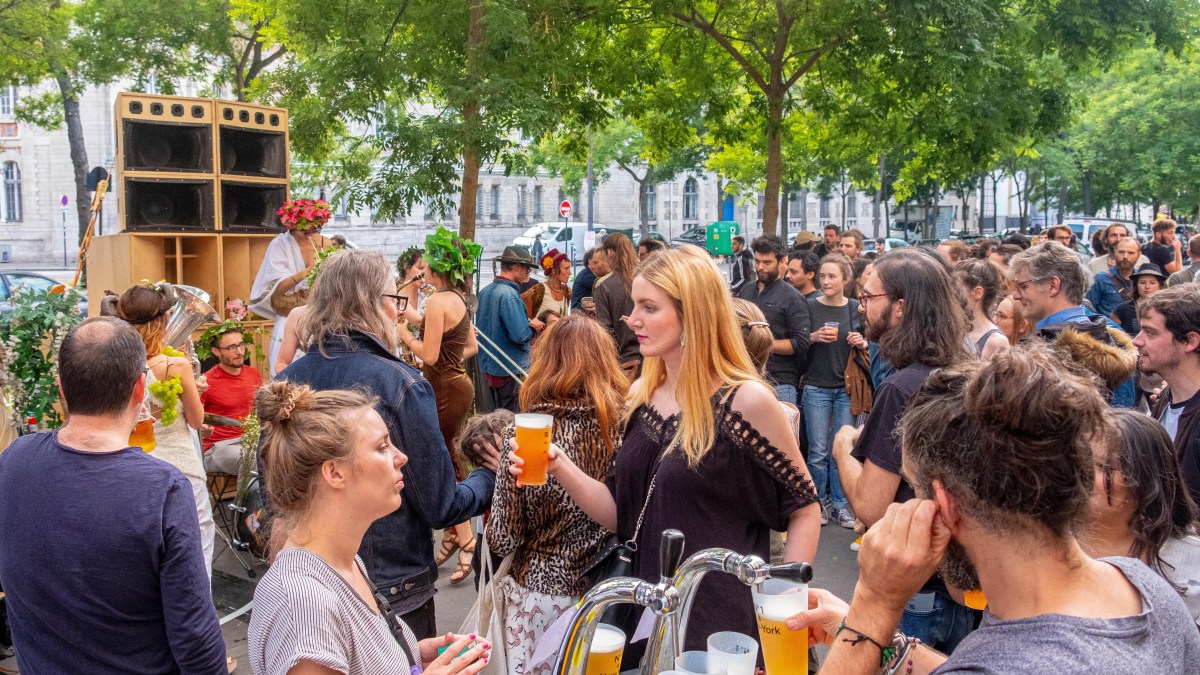Villages fêtes are often held in honour of the local patron saint in France but the behaviour of participants is increasingly unholy, according to officials.
Drunkenness, brawls and even knife crime are commonplace at rural fêtes where alcohol is generally served until 2am, including to under-age adolescents, they say.
Rural authorities now want to clamp down in an effort to restore order.
Take, for instance, the Ardèche département in the south, where police have already intervened 15 times at village fêtes so far this summer, mostly to break up fights between inebriated youths.
Sophie Elizéon, the local prefect, who is the interior ministry representative in the département, has responded by announcing a ban on the sale of alcohol after midnight at fêtes until the end of August. She said the move was requested by some local mayors fed up with chaotic scenes in quaint villages as revellers from surrounding areas binge-drink until the early hours.
Elizéon denounced “numerous acts of violence … at patronal fêtes and other big festive gatherings …where brawls against a background of alcohol consumption have required the intervention of the forces of law and order and during which minors have had access to alcoholic drinks”.
But her decision has infuriated other mayors who want to maintain the traditional 2am closing time for stands selling alcohol at fêtes. They say the stand-holders, mostly local associations, will lose revenue if they are forced to close two hours earlier.

Revellers at the Fête des Bouviers in Loriol-sur-Drome, southern France
ALAMY

The issue is an additional difficulty for the organisers of the 10,000 or so fêtes held every year in France, who are already struggling to find volunteers and to cope with growing rules and regulations.
“We mustn’t penalise everyone because of a few problems that we’ve had at fêtes since the start of the summer,” said Sébastien Pradier, chairman of the Association of Rural Mayors in the Ardèche. “Otherwise, associations are going to die.”
Sports clubs, cultural associations and fête organisers can generate hundreds and sometimes even thousands of euros from a drinks stand.
• The fate of fêtes hangs in the balance in rural France
Olivier Amrane, the département council chairman, expressed “anger at this decision which penalises the entire population … because of the behaviour of a few individuals. This decision … will have heavy consequences for associations.”
Amrane and Pradier want mayors to be given the right to choose the closing time for local fêtes.
In the Hérault département, also in the south, officials have distributed a 50-page booklet containing advice to mayors on the organisation of rural fêtes. The use of private security firms and a 1am shutdown are among the recommendations.
Many of the Hérault’s fêtes feature a running of the bulls, during which injuries linked to drunkenness are frequent. The booklet says that revellers must be given advanced notice in several different languages before the release of the bulls.

The running of the bulls is a feature of fêtes in the southern commune of Uzès
ALAMY
Jean Lafon, head of the local bullowners’ federation, blamed youths for the breakdown in order. “At midday, at the start of the fête, these youths … are adorable,” he told 20 Minutes newspaper. “But in the evening, it’s a completely different matter. They are aggressive, violent and some get out weapons under the influence of alcohol and drugs. Everything degenerates.”
This summer, an association has been present at village fêtes in the Grand Pic Saint-Loup area near Montpellier to warn of the dangers of excessive alcohol consumption. La Fête sans Accroc was founded by Sabine Vigne, a local woman whose son, Fabien, was stabbed to death at a fête in Montarnaud in 2009.
